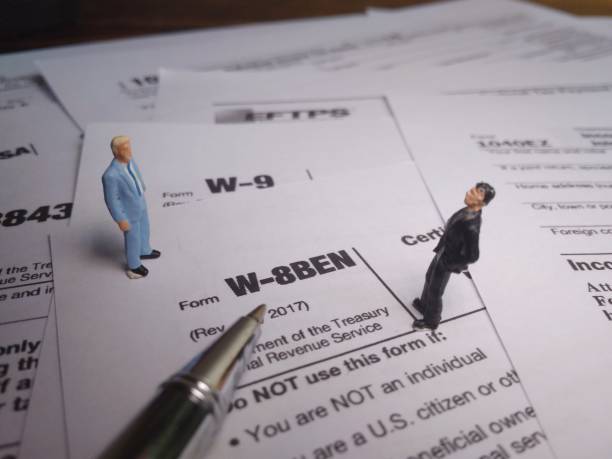
Unlike earlier decades and generations like our grandparents or even parents, today, getting a home loan, be it a DHFL home loan or some other, is difficult because, on the one hand, banks are struggling with a rising number of nonperforming assets (NPAs), and on the other hand more individuals want to buy property. Lenders are understandably wary when it comes to doling out mortgages because purchasing a home is one of the largest single purchases most people will ever make. Banks, as we all know, carefully evaluate loan applicants based on a number of criteria, including evidence of the applicant’s ability to repay the loan in a timely manner and the applicant’s overall credit history.
Uncertainty in one’s job history
Stable employment is one of the most important factors that NBFCs and banks use to determine if a potential borrower will be able to make their mortgage payments on time. In order to qualify for a house loan, several financial institutions need borrowers to provide employment verification showing that they will be staying with the same company for a minimum of three years. Therefore, if you have a short work history, are now employed on a contract basis, or have frequently switched jobs in the past, you should probably wait before applying for an IDBI home loan or any other type of loan.
High income-to-debt ratio
A good rule of thumb to keep in mind while applying for a home loan, or any other type of loan, is that your total loan burden, including the loan for which you are applying, should not exceed 50% of your income. If you already have a number of loans out, the bank is likely to reject your application for a new home loan on the grounds that you are already in debt to them.
Poor credit profile
You probably already know that your credit report is one of the most important criteria in deciding whether or not to grant you a loan. A bad credit score, for the uninitiated, implies poor repayment habits and a shortage of finances, showing the borrower to be negligent, and if the payback is regularly delayed, the credit score deteriorates and stays that way unless the borrower takes some action. Borrowers with credit scores over 750 are taken seriously by banks and considered good risks for DHFL home loans. If your credit score is poor, you can raise it through responsible financial behaviors, including paying bills on time, monitoring your report frequently, settling any outstanding balances, etc.
Tax record discrepancy
Home Loan applications from people with regular income from reputable employers and high credit scores may be denied by banks and NBFCs if they discover discrepancies in their applicants’ tax records like ITR. So ensure that you have all these aspects clean and covered.
Job in high-risk industries
If, although having a secure income, your job description entails exposure to potentially fatal situations, as is the case with journalists, your application for an IDBI home loan is likely to be denied, and you should prepare yourself for this possibility.
A low-value housing property
When deciding whether or not to lend money, NBFCs and banks do preliminary valuations of the properties being used as collateral. An application for a loan may be turned down if the appraised value of the property is deemed insufficient. Locate a home whose worth is consistent with the current market rate.
Documentary disputes or legal complications
It’s possible for banks to reject your loan application if the property you want to buy has unresolved legal concerns or contested characteristics. Keep in mind that the bank you approach for financing will thoroughly examine the property’s historical documents to guarantee that it has clear, marketable titles.
Unauthorized or non-tie-up with a builder
Your house loan application may be denied even though you have a high credit score, a secure job, and a profile that a bank can accommodate, just because the bank is unhappy with the builder. Keep in mind that a bank carefully considers which construction projects to finance depending on a number of factors. Therefore, there is a good probability that your application for a DHFL home loan would be denied if the property was built by an unapproved builder.
Failure to Meet Age and Eligibility Requirements
Are you aware that if your age exceeds the maximum allowed by the bank, you may be denied a home loan? Why? Because mortgages typically have terms of 20 or even 30 years. The bank may decide not to provide you with a loan if, for instance, you are either close to retirement age or plan to retire during the term of the loan. If your age is on the higher side, you may wish to take up a mortgage under the name of someone younger who is a better age fit with the bank. Your chances of getting approved for an IDBI home loan go up if you have a younger co-applicant, such as a spouse or child.
Associated with a defaulter
If a member of your household or a tenant at your residence is listed as a defaulter with a major credit agency, you will be unable to obtain a loan. Make sure you have to disclose this to the bank before applying for a DHFL home loan so that your application is not rejected on this ground and/or the lender can think of a possible solution to it.
And last but not least, keep in mind that every time you get turned down for a home loan, you may be tempted to apply for another loan, which will look bad on your credit report. Therefore, the above points are provided to keep you informed of the fundamental reasons why a loan application gets rejected and hopefully prevent you from falling into a vicious cycle of loan denial and, instead, assist in boosting approval chances for an IDBI home loan.





